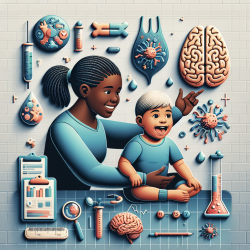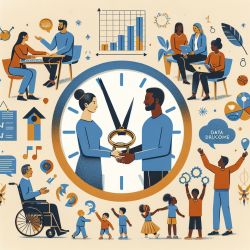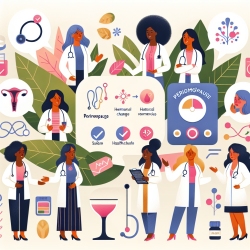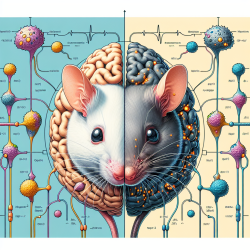As practitioners dedicated to improving the lives of children, staying abreast of the latest research is crucial. The recent article "Towards a South African model of language-based learning disability" published in the South African Journal of Communication Disorders provides valuable insights into early indicators and assessment models for language-based learning disabilities (L-b LD). This blog aims to help you implement these findings in your practice or encourage further research.
Understanding Language-Based Learning Disabilities
Language-based learning disabilities are a group of disorders that affect listening, speaking, reading, writing, and mathematics. These disabilities can stem from various intrinsic factors such as neurological or medical conditions and are often influenced by extrinsic factors like environmental, systemic, or cultural dynamics.
Key Findings from the Research
The research by Mazibuko, Flack, and Kvalsvig (2019) presents a comprehensive model that includes both intrinsic and extrinsic factors contributing to L-b LD. Here are some of the key findings:
- Intrinsic Factors: Neurological development disorders, auditory perception issues, cognitive processing skills, and language processing skills.
- Extrinsic Factors: Environmental influences, language culture, and socioeconomic conditions.
Early Indicators
Identifying early indicators of L-b LD is crucial for timely intervention. The study outlines several intrinsic early indicators, including:
- Delays in speech and language development
- Issues with cognitive processing skills
- Perception and reasoning difficulties
- Social interaction challenges
Application in Clinical and Educational Settings
The models proposed in the study are designed to be applied in both clinical and educational settings to differentiate L-b LD from other language disorders. These models emphasize a holistic approach, considering both intrinsic and extrinsic factors.
Steps for Practitioners
Here are some actionable steps you can take to implement these findings in your practice:
- Conduct Comprehensive Assessments: Use both qualitative and quantitative methods to assess the child’s language abilities, considering intrinsic and extrinsic factors.
- Engage with Parents and Teachers: Collaborate with parents and teachers to gather a complete picture of the child’s language and learning environment.
- Utilize Technology: Incorporate tools like online assessments and social media platforms to support therapy and engage with stakeholders.
- Stay Informed: Keep up with the latest research and consider contributing to ongoing studies to further our understanding of L-b LD.
Encouraging Further Research
While the models and findings presented in the study offer a solid foundation, continuous research is essential. Practitioners are encouraged to explore the applicability of these models in different contexts and contribute to the development of more refined assessment tools.
To read the original research paper, please follow this link: Towards a South African model of language-based learning disability.










